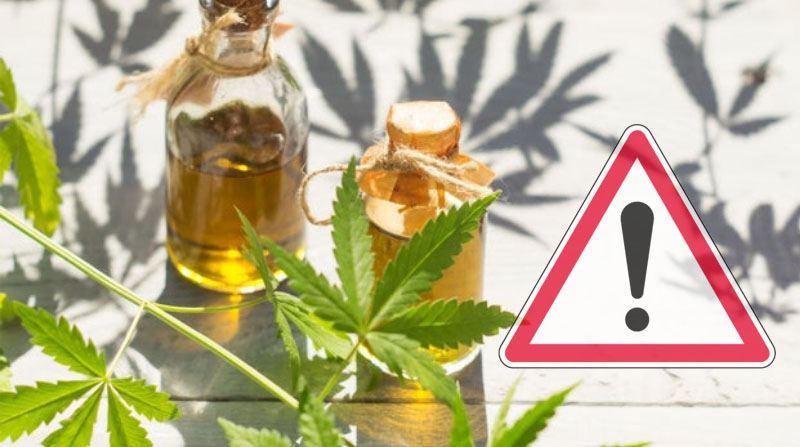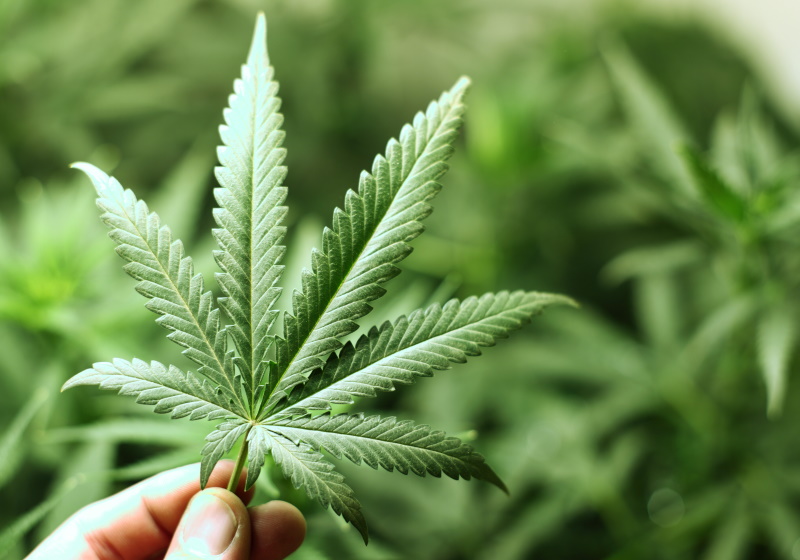Have a question? 06 70 73 89 02
🔞 Not for sale to under 18s
Have a question? 06 70 73 89 02

According to the World Health Organization's (WHO) November 2017 report[1]: CBD is not risky and is generally well tolerated.
The adverse reactions reported are probably the result of drug interactions between CBD and patients' existing medications.
Based on numerous human clinical studies, the WHO affirms that CBD is non-addictive.
Like grapefruit, cannabidiol can inhibit enzymes (cytochromes p450)[2], present in the liver and used by your body to assimilate certain pharmaceutical drugs.
Taking CBD at the same time as medication could pose a risk to your health by either either by increasing or decreasing the levels of these drugs in your blood. If you're currently taking prescription medications - especially * those with a warning not to consume grapefruit * such as anticoagulants, anti-epileptics, HIV antivirals, chemotherapy and others - we suggest you talk to your doctor before incorporating CBD into your wellness routine. He or she will help you understand potential interactions.
> Before taking any CBD, and especially for serious illnesses, it is essential to consult your doctor before deciding to take CBD. If only because drug interactions could be problematic.

For the FDA, the U.S. drug agency: At this time, there is no extensive research on the effects of CBD on the developing fetus, the pregnant mother or the nursing baby.[3] The FDA has also stated that CBD may be harmful to the developing fetus, the pregnant mother or the nursing baby.
The American agency therefore advises against taking CBD products during pregnancy and breastfeeding.
Even though the World Anti-Doping Agency (WADA) recently (2018) removed CBD from its list of proscribed substances [4]: CBD is still a substance which, although legal, is not yet widely used. It will therefore take some time for screening tests to take into account the difference between CBD and THC* (a molecule that has a psychotropic effect). It is therefore advisable to stop using CBD several weeks before taking a drug test.
* EU regulations require THC levels to be below 0.2%.
First of all, it's worth remembering that the vast majority of cannabidiol users experience no adverse effects whatsoever.
For Cambridge University graduate Dr Sarah Brewer[5]: "At doses used as a dietary supplement, CBD presents few risks and side effects are unusual but may include dry mouth or drowsiness." The doctor goes on to note that "Higher doses used for medicinal purposes are also well tolerated and there are no serious safety concerns."
A 2006 clinical study[6] revealed that the submaxillary gland, which produces over 60% of saliva, possesses cannabinoid receptors. Anandamide, an endocannabinoid that causes dry mouth, interacts with these receptors and inhibits saliva production by blocking the nervous system signals that produce saliva.
Depending on the quantity taken, CBD has different effects: at low doses, CBD can give a feeling of energy and alertness, while at very high doses (overdose), CBD relaxes and encourages drowsiness.
In the case of a strong overdose of CBD in a single dose, this translates into a sensation of numbness, a feeling of muscle stiffness[7]. For this to disappear, all you need to do is take a break, and accompany it with a good night's sleep.
A Brazilian study published in September 2011[8] shows that CBD used daily for 1 month is well tolerated, even at very high doses (1,500 mg/day).
To give you an idea, 1,500 mg of CBD represents no less than 100 drops a day with 30% CBD oil (one of the most potent available). This is a far cry from the typical CBD user dose of between 10 and 80 mg a day.

As we have seen, like any active substance, there are precautions to be taken before taking cannabidiol. To end on a positive note, here's the World Health Organization's position on the promising aspects of the molecule.
Also in its report on cannabidiol[9], the WHO echoed the 2017 study by Pisanti et al, the latter of which established an overview of diseases for which CBD may have therapeutic benefits: